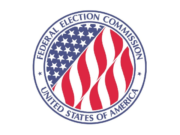Grassroots advocates cannot seem to catch a break. The supposed virtue in electioneering-communication provisions is that they were supposed to be clear, not at all vague. Much time and anguish might have been saved, however, had the McConnell Court placed equal focus on whether the provisions are overbroad. Real advocates concerned with real issues are being told to sit tight and sit out another legislative cycle while the Court decides how best to decide the gap between lobbying and electioneering.
Pro-life groups and more recently school-choice advocates (see South Carolinians for Responsible Government v. South Carolina Ethics Commission, 3:06-CV-01640-MJP, (D. S.C., May 30, 2006)) now find themselves in purgatory. As CCP Advisor Allison Hayward has mused, one group cannot get an injunction from a court, cannot get an exemption from the FEC, and can hope now only to get arrested. Disobedience after seeking a dispensation would be a knowing and willful violation that carries criminal penalties. Even if the group were willing to engage in a little civil disobedience, they would still need a licensed broadcast station willing to risk its license. Otherwise, who notices silence? Who notices the absence of something? BCRA disobedience cannot be accomplished through demonstration or sit-in.
The Christian Civic League of Maine tried to use its funds to broadcast an ad urging Maine’s citizens to contact Sen. Olympia Snowe (R-Me) in advance of a June 2006 Senate vote on the Marriage Protection Act while Sen. Snowe was a candidate in the June primary election. The League sought an injunction and an as-applied exception, which was dismissed as moot. Earlier this week, the Supreme Court denied certiorari. (Christian Civic League of Maine, Inc. v. FEC, U.S. 05-1447, cert. denied, Oct. 2, 2006).
The Court’s failure to hear the League’s appeal is in some sense understandable. In McConnell the Court upheld electioneering communications facially, making the review of a failed injunction seem out of place, especially as the Court’s efforts in Wisconsin RTL recognize the viability of as-applied challenges, and ought soon to be enough to determine the contours of future grassroots lobbying and as-applied challenges.
But the Court also denied review of a facial challenge to an Alaska electioneering communications provision. Alaska’s provision goes well beyond the one upheld in McConnell, which reaches broadcast advertising naming candidates within 30 days of a primary, caucus, or convention, and 60 days of a general election that is targeted to voters in the candidate’s district. In affirming these provisions, the McConnell Court acknowledged the government’s interest in stemming large quantities of corporate or union money for expensive broadcast advertising. Alaska’s provision, however, reaches any communication, in any medium, made within 30 days of a general election that addresses an “issue of national, state, or local political importance” if it attributes a position on the issue to the candidate identified. The Alaska statute has no targeting restriction.
The Court’s refusal to grant certiorari in Alaska RTL is less understandable and may tell a different story; one of a court moving cautiously and not just for the sake of constancy in a constitutional system, as Justice Roberts noted in his famous speech at Georgetown University Law School. In denying review of Alaska RTL, the justices passed on the opportunity to say whether some state statutes are facially problematic where they expand radically the BCRA-style electioneering provisions upheld in McConnell.
This may signal that the road back to free speech may be slower and steadier than some speech advocates had hoped.














